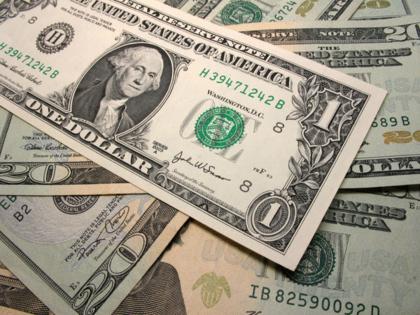Commentary: Yes, cash grants do help families in poverty
Published in Op Eds
If their parents had extra cash, would it help poor children? The intuitive answer is yes — not only can any parent attest to the cost of raising children, researchers can also point to a variety of ways in which poverty leaves a mark. But lately a flurry of news and commentary has been saying that, actually, the answer is no: Cash doesn’t make a difference.
The question is raised by an ongoing research study that has been sending cash every month to poor mothers since their child’s birth and found no measurable impact on child development after four years. It’s a convenient finding for conservative groups that have long opposed cash transfers that come without any strings attached. Their argument against sending money to families with children in poverty, they can say, is not about the character of the mom, or her work ethic, or her marital status. It’s just about the evidence.
Yet this conclusion exhibits two logical flaws. One is a failure to understand the study, the other a failure to understand policy.
The study in question, called “Baby’s First Years,” is not a policy evaluation but a research study. It’s a subtle but critical point. The research team didn’t set out to test how effective a cash policy is. It is using small infusions of cash as a way to understand how poverty affects children. A policy evaluation aims to recommend the best, tested design. A research study aims to test and answer a question — in this case, how early exposure to poverty affects brain development and function in children.
In 2018, the research team recruited 1,000 mothers of healthy newborns in four cities, giving one set $20 a month (the low-cash group) and another $333 a month (the high-cash group). The average annual income of both groups outside the study’s supplement was just $21,000. The study is ongoing, and data collection continues; the children are now 6 years old.
In August an interim working paper reported that there were no statistically significant differences between the two groups in child development at age 4. The researchers note that this finding could reflect the pandemic (when the kids were between 2 and 3 years old) or be a measurement error — caveats that didn’t make into headlines such as “Free Cash to Poor Families Isn’t Helping the Kids.”
What’s more, the idea that the money “isn’t helping the kids” is not supported by other findings from the study. The high-cash group consistently spent more money on stuff for their children. Some of their purchases, such as toys and books, meant these mothers spent more time helping their children learn. Other purchases alleviated hardship, such as a proper winter coat, or gave children small luxuries, like a Christmas tree.
Do those purchases affect children in ways not measured in the development markers (which are language, executive function, social-emotional problems or high-frequency brain activity? At the moment, we don’t know. Frankly, this is why we do research studies.
Even so, for the sake of argument, let’s stipulate that these results on child development do not change — that an extra $4,000 annually in unconditional cash does not improve these outcomes. That just means the problem is still there: being a child from a high-income household is associated with better performance in all these areas.
The policy conclusion would thus be: It’s not enough to throw some money at families. If America wants its children to overcome the economic inequality they were born into, rather than be defined by it, then it has to do more.
Which is why jumping on these interim findings to say that a government benefit is no replacement for a job is, truly, an argument of convenience. It’s also an odd argument for conservatives to make right now.
The Republican Party pushed a $4.5 trillion tax cut through Congress last summer. The Congressional Budget Office estimates that, for the top 10% of households, the law will result in an additional $13,500 in annual income. The next 10% will get $3,600 back annually, and each subsequent decile of households will get less — all the way to the poorest 10%, which will end up about $30 worse off.
In other words: 90% of households in the U.S. will get less from what Republican leaders proudly called “the largest tax cut in American history” than the 1,000 moms are getting for participating in this study. To decry that cash does nothing for the poorest children but is justified — even when given out in much smaller amounts — for richer households is a double standard.
If there is a call to action from the study, it’s that America needs to do more for its children, not less. And for what’s it’s worth, the moms in the study agree. According to lengthy interviews with some of them, they say government underinvests in children. They specifically cite the need for family-friendly work, child care and access to more safe activities and spaces for children.
At the end of the day, $333 a month isn’t nothing, but it’s not a cure-all, either. Some people will see that as a reason not to provide it, rather than a motivation to do more — which says more about them than it does about children, cash or poverty.
____
This column reflects the personal views of the author and does not necessarily reflect the opinion of the editorial board or Bloomberg LP and its owners.
Kathryn Anne Edwards is a labor economist, independent policy consultant and co-host of the Optimist Economy podcast.
©2025 Bloomberg L.P. Visit bloomberg.com/opinion. Distributed by Tribune Content Agency, LLC.
























































Comments